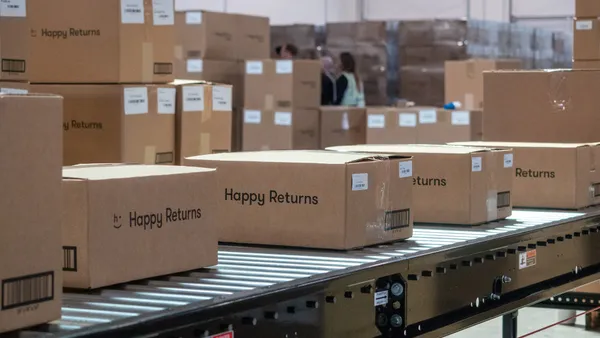Dive Brief:
- A growing number of companies are using analytics to detect and deter fraud in the supply chain, according to a poll by Deloitte.
- More than one-third of respondents in Deloitte's poll said they're using analytics software to detect fraud before it happens — a 10% increase from a similar survey Deloitte conducted in 2014.
- Fraud examples include overbilling from third parties, issues with following contract terms, and bribery and kickback schemes. Companies often do not realize they've fallen victim to a fraud scheme until they've already lost money.
Dive Insight:
There is no place for systematic bad behavior in the supply chain. And, it is a positive trend that companies can now use analytics to identify fraudulent practices from suppliers. But before we lump together supply chain fraud with a broad brush, lets take a look at some of the issues that may percolate up from both sides.
Let’s begin with the supplier side. Many years ago, an unhappy salesman tipped me off to a shipping scam at his company, one of my regular suppliers.
Back in the days before UPS shipping became an automated process, shippers would need to use an ink pad rubber stamp to put the UPS account number near the shipping label on a box. There was a space within that account number to write the weight of the shipment. Next, the shipper would write the shipping information into an official UPS shipment log, and that would allow for UPS to bill the company, and trigger accounts payable to bill the customer for the proper shipping amount in the traditional ‘pre-pay and add’ process.
The salesman told me it was a consistent practice to keep the UPS records accurate but add one pound to the customer invoice. For example, if UPS billed the shipper $5.00 for a two-pound package, the company billed the customer $5.50 for a three-pound package, the next incremental charge. They did this on most every shipment, ready to blame the shipping clerk or the invoice person for sloppy work. Yet, it was such a small individual amount that customers never caught it, and the company considered it a margin enhancement. Perhaps today, analytics would catch this.
Let’s look at all members of the supply chain equally.

Supply Chain Dive
And sadly, I have tales of fraud from the buy side as well. The article mentions bribes, kickbacks and corruption. In my many decades on the buy side, I have seen some pretty bad buyer behaviors.
It was open season on suppliers during the holiday season, and not with the box of cookies or candy shared in the coffee room. I have seen buyers leave their car trunks unlocked for the supplier to directly put in the gift of a case of liquor. I had a boss proudly show off the keys to a supplier’s condo he was using on a trip to Florida. And there were instances where I saw buyers take money from suppliers. That one got fired. I’m not sure analytics can track an envelope stuffed with cash.
Let’s keep the playing field level here. When the supplier overbills for hours, it is considered fraud. Yet, when the buyer leverages a supplier for a gift in exchange for business, it is considered an ethical breach. I think they are just as bad, and I can make a case that poor buyer behavior is even worse.
Make no mistake in my comments; I abhor fraud, cheating and any ethical breaches in business. But before we recognize supply chain fraud with its own acronym (SCF), and make it a supplier issue, let’s look at all members of the supply chain equally. There may be plenty of blame to go around. Be careful out there.












